
Action Tips For Pending Action Based On Laws And Decisions To Enforce.
Action tips for pending action based on Laws and decisions to enforce. These words have been understood to mean a pending suit. The Court misinterpreted and misunderstood that the meaning of ‘action’ is not confined to a suit or other legal proceeding in court or that the word will mean and include any action to be taken by the insurer after the claim is lodged by the insured. We would like to say in the same vein that the words ‘pending action’ have been understood in this sub-continent for well over 80 years as pending suit and we find no jurisprudential backing, no unfurling of a novel proposition of law and no impelling consideration of justice and fair play in the judgment of the High Court Division to disturb that understanding for action The High Court Division clearly misinterpreted and misunderstood the words ‘pending’ action and we have no hesitation in disapproving of the same == *Sadharan Bima Corporation vs. Sanjib Kumar Das and another, 47 DLR (AD) 97 = 1 MLR (AD) 179. Ref: Roul Colinvaux in The Law if Insurance, 3rd Edition, 1970 at page 25; Halsbury’s Laws of England, 3rd Edition Vol. 1, at page 2; AN Ghose vs. Reliance Insurance Company, AIR 1934 (Rabgoon)15; Baroda Spinning and Weaving Co. Ltd. vs. Satynarayan Marine and Fire Insurance Co. Ltd. AIR 1914 (Bom) 225; Shree Hari Sankar Nandi Majumdar vs. Sree Promode Chandra Roy Choudhury, 4 PLR (Dacca) 595; Honuman Box vs. Eagle Star and British Dominions Insurance Company Ltd. AIR 1924 (Cal) 186; G. Rainey vs. Burna fire and Marine Insurance Co. Ltd. AIR 1926 (Rangoon) 3; Rubi General Insurance Company vs. Bharat bank. AIR 1950 (EP) 352; Pearl Insurance Company vs. Atma Ram, AIR 1960 (Punjab) 236; Vulcan Insurance Co. Ltd. vs. Maharaj Singh, AIR 1976 (SC) 287; Aargodha Central Co-operative Bank Ltd. vs. Mew Hampshire Insurance Co. PLD 1982 (Karachi) 627; Ali Pipe Industries vs. The Universal Insurance Co. Ltd. PLD 1989 (Lah) 390; Pir Bakhsh vs. Chairman, Allotment Committee PLD 1987 (SC) 145.
Pending Action: These words have been understood to mean pending action in suit. The Court misinterpreted and misunderstood that the meaning of ‘action’ is not confined to a suit or other legal proceeding in court or that the word will mean and include any action to be taken by the insurer after the claim is lodged by the insured in action pending. We would like to say in the same vein that the words ‘pending action’ have been understood in this sub-continent for well over 80 years as pending suit and we find no jurisprudential backing, no unfurling of a novel proposition of law and no impelling consideration of justice and fair play in the judgment of the High Court Division to disturb that understanding to know about action. And to explain about action The High Court Division clearly misinterpreted and misunderstood the words ‘pending’ action and we have no hesitation in disapproving of the same == *Sadharan Bima Corporation vs. Sanjib Kumar Das and another, 47 DLR (AD) 97 = 1 MLR (AD) 179. Ref: Roul Colinvaux in The Law if Insurance, 3rd Edition, 1970 at page 25; Halsbury’s Laws of England, 3rd Edition Vol. 1, at page 2; AN Ghose vs. Reliance Insurance Company, AIR 1934 (Rabgoon)15; Baroda Spinning and Weaving Co. Ltd. vs. Satynarayan Marine and Fire Insurance Co. Ltd. AIR 1914 (Bom) 225; Shree Hari Sankar Nandi Majumdar vs. Sree Promode Chandra Roy Choudhury, 4 PLR (Dacca) 595; Honuman Box vs. Eagle Star and British Dominions Insurance Company Ltd. AIR 1924 (Cal) 186; G. Rainey vs. Burna fire and Marine Insurance Co. Ltd. AIR 1926 (Rangoon) 3; Rubi General Insurance Company vs. Bharat bank. AIR 1950 (EP) 352; Pearl Insurance Company vs. Atma Ram, AIR 1960 (Punjab) 236; Vulcan Insurance Co. Ltd. vs. Maharaj Singh, AIR 1976 (SC) 287; Aargodha Central Co-operative Bank Ltd. vs. Mew Hampshire Insurance Co. PLD 1982 (Karachi) 627; Ali Pipe Industries vs. The Universal Insurance Co. Ltd. PLD 1989 (Lah) 390; Pir Bakhsh vs. Chairman, Allotment Committee PLD 1987 (SC) 145.
The word ‘pending action’ means initiating a legal proceeding in Court within the mentioned period and its failure by the insured, forfeits his right to sue under the Policy == *Bangladesh General Insurance Co. Ltd, 51 DLR 357. Ref: Borada Spinning and Weaving Co. Ltd. vs. Satyanarayan Marine and Fire Insurance Co. Ltd. 1914 AIR Bombay 225; Girdharilal Honuman Bux vs. Eagle Star and British Dominions Insurance Co. Ltd. 1924 AIR (Cal) 186; Sree Hari Sankar Nandi Majumder vs. Sree Promode Chandra Roy Choudhury, 4 PLD (Dhaka) 595; and Sadharan Buma Corporation vs. Sanjib Kumar Das and another, 47 DLR (AD) 97 = 1 MLR (AD) 179.
ACTION: UNLAWFUL: CHALLENGE: FORUM:ACTIVITIES: VOLUNTARY: MEANING:
The word ‘action’ is unknown in the sub-continental jurisprudence. It is not defined in our Code or Civil or Criminal Procedure. We hear of “department action” “police action” “prompt action” and the like and we do not use this word in connection with legal proceedings to pending action case.. It is because of this lack of association of the word ‘action’ with legal proceedings that attempts were made to extricate those words from the purview of legal proceedings in a court of law in regards of action and to consign the words to the arena of exchange of correspondence between the insurer and the insured in action pending case about action. == *Sadharan Buma Corporation vs. Sanjib Kumar Das and another, 1 MLR (AD) 179 = 47 DLR (AD) 97.
ACTIVITY: VOLUNTARY: MEANING:
The law on the point of action pending is Foreign Donations (Voluntary Activities) Regulation Ordinance, 1978 (Ordinance 46 of 1978). This Ordinance was promulgated to regulate receipt and expenditure of foreign donations for voluntary activities and voluntary activities means an activity undertaken or carried on by any person or organizations of his or tits own free will to render agricultural, relief, missionary, educational, cultural, vocational, social welfare and developmental services etc. So BRAC as a charitable society can receive and spend foreign donations for social welfare activities and as a registered society it has authority to spend donated amounts as per its Memorandum of Association and also under the said Ordinance. But this Ordinance has not created any obstacle in the investment for the purpose of getting more income to be spent in charities. The law on the point is silent. There is no bar in the law in investing foreign donations in income generating activities and if BRAC has invested the unspent donation in BRAC Bank it has not violated any of the provisions of the Ordinance, Foreign Donations (Voluntary Activities) Regulation Ordinance, 1978 (Ordinance 46 of 1978), Section 2(d) == *BRAC and others vs. Professor Mozaffar Ahmed and others, 7 MLR (AD) 49 = 54 DLR (AD) 36 = BLD (AD) 41.
Pending action in a pre-emptor may be held to be stopped from enforcing his right of pre-emption if he abandons such right either expressly or by implied conduct. Acquiescence implies that if a person abstained from interfering while a violation of his legal right is in progress it operates by way of estoppel. In the instant case, there are adequate evidence on record to prove that the petitioner had knowledge of the sale made by his brother and he gave consent to the sale in question waiving his preferential right of purchase, The State Acquisition and Tenancy Act, 1950 (XXVIII of 1951), Section 96(3)(b) == *Sree Aumullaya Chandra Halder vs. Md. Mohsin Ali Mondal and others, 22 BLD 572. Ref: Akhlasur Rahman and others vs. Serazuddin and others, 42 DLR (AD) 189.
AQUIESCENCE: APPLICATION: PRINCIPLE:AD INTERIM INSUNCTION: GRANT: OBJECT:AD INTERIM INSUNCTION: GRANT: PRINCIPLE:
American Cyanamid Co. vs. Ethicon Ltd. HL (E) 1975 AC 396, Lord Diplock reiterated the well-established principles governing the issuance of temporary injunction and the deterining principles of balance of convenience. It was observed: “The object of the interlocutory injunction is to protect the plaintiff against injury by the violation of his right for which he could not be adequately compensated in damages recoverable in the action if the uncertainty were resolved in his favour at the trial; but the plaintiff’s need for such protection must be weighted against the corresponding need of the defendant to be protected against injury resulting from his having been prevented from exercising his own legal right for which he could not be adequately compensated under the plaintiff’s undertaking in damages if the uncertainty were resolved in the defendant’s favour at the trial. The court must weight one need against another and determine where “the balance of convenience lies.” (para 11), Code of Civil Procedure, 1908 (V of 1908), Order XXXIX, rule 1, Kemaluddin Hossain, CJ. Fazle Munim, Ruhul Islam, Badrul Haider Chowdhury and Shahabuddin Ahmed, JJ. (Judgement delivered by Badrul haider Chowdhury, J.), Civil Appeal No. 71 of 1980 == *Uttara Bank vs. Macneill and Kilburn Ltd. and others, 33 DLR (AD) 298. Discussed-1978 Lloyd’s Law Reports 166; (1975) AC 396; AIR 1970 (SC) 891.
To interfere with the internal management of a Company or Domestic tribunal___ An order of interim injunction is to be passed keeping in view the principles that the Court will not normally interfere with the internal management of a company and with the decision of a domestic tribunal, Order XXXIX, rule 1, 2 and 4 == *Shafiuddin Sarwar vs. Dhaka Club Limited and others, 45 DLR 753.
In a fit case the court can issue mandatory injunction in ad-interim form but such power is to be exercised in rare cases where there is an imminent grave danger to life or property or for the purpose of restoring maintaining status quo. When the plaintiff’s claim can be compensated by money on his success, no order of injunction should be made. I a suit concerning service matters when permanent injunction cannot be granted, temporary injunction should not ordinarily be granted, not to speak of a mandatory injunction, Code of Civil Procedure, 1908 (V of 1908), Section 151 and Order XXXIX, rule 1 and 2 == *Dr. Halida Hanum vs. Dr. Firdosi Khanam, 14 BLD (AD) 195. Cited: PLD 1954 (Lahore) 151; 8 CWN 996; PLD 1969 (Dhaka) 832.
While an application under Order XXXIX rules 1 and 2 of the Code for granting temporary injunction was pending the plaintiff opposite party No. 1 filed an application under section 151 of the Code for an ad-interim injunction retraining the defendants from proceeding with the departmental enquiry which was allowed by the impugned order. Inherent power of the Court cannot be exercised for granting ad-interim injunction while the application for temporary injunction is pending for disposal which is neither legal nor proper. Accordingly, a direction was given by the High Court Division to dispose of the application for temporary injunction within 10 days from the date of receipt of the order, Code of Civil Procedure, 1908 (V of 1908), Order XXXIX, rule 1 and 2 and section 151 == *Kamrun Naher vs. Nur Afruza Begum, 2 BLC 582.
ADMINISTRATIVE: ACTION: MALAFIDE: MEANING:ADMINISTRATIVE: ACTION: MALAFIDE: NATURE:
When an act or order is tainted by malafide: A malafide act is by its nature an act without jurisdiction. No legislature when it grants .Power to take action or pass an order contemplates a malafide exercise of power. A malafide order is a fraud on the statute. It may be examined that a malafide order means one which as passed not for the purpose contemplate granting the power to pass the order, but for some other collateral or ulterior purpose == *Nur Muhammad and thers vs. Moulvi Mainuddin Ahmed and others, 39 DLR (AD) 1.
ADMINISTRATIVE ACTION: NATURAL JUSTICE: COMPLIANCE:PRINCIPLE:
The principle of natural justice ought to have been complied with. Because principle of natural justice is also applicable in administrative matters as natural justice demands that before a person is proceeded against he should know the allegations against him and, as such, he should be given an opportunity of explaining his position in the matter == *Rafiqul Alam vs. Sectary, Ministry of Works, Government of the People’s Republic of Bangladesh and others, 49 DLR 456.
Whether in administrative or in judicial matters the principle of natural justice, if it is not inconsistent with the provisions of the statute, must be strictly adhered to and complied with == *Mrs. Nurjahan Begum vs. Bangladesh and others, 14 BLD558. Ref: Ms. Kamruzzaman vs. The Secretary, Ministry of Public Works and Urban Development, Government of Bangladesh, 29 DLR 125.
ADMINISTRATIVE AUTHORITY: ORDER: CANCELLATION: LEGALITY: DETERMINATION: CONSIDERATION:: ORDER: CANCELLATION:
LEGALITY: DETERMINATION: PRINCIPLE:: ORDER: CANCELLATION: BAR:
DETERMINATION: PRINCIPLE: ORDER: CANCELLATION: PRINCIPLE:
An authority having passed an original order legally can cancel or withdraw it only so long the order has not been carried into effect or given effect to___ the gradation list of 1990 was prepared upon a wrong interpretation of rule 4(2) (Gha) and, as such it could not create a legal right in favour of the writ petitioners and accordingly, the plea of vested right could not be alleged to have accrued: The writ petitioner-respondents argued that they have been given the benefit of their ad-hoc service in determining inter-se seniority in the gradation list of 1990 and were given promotions on that basis, as such they have a vested right which cannot be defeated by a fresh interpretation made in 1998 and by the gradation list prepared in 1999. If the interpretation of rule 4(2)(Gha) given in 1990 and 1994 are correct, the writ petitioners would be entitled to the benefit of their ad-hoc service irrespective of any question as to vested right. But the question is, whether the plea of vested right is available if that earlier interpretation of 1990 and 1994 are found wrong? (para 30). In support of their plea of vested right the writ petitioners have relied on the cases of Himayetullah vs. Pakistan, reported in PLD 1969 SC 407, Shoib vs. Bangladesh reported in 27 DLR 315 and Shahbaz vs. Crown, reported in PLD 1956 FC 46 = 8 DLR (FC) 20. In all these cases, it has been held that an authority having passed an order can cancel or withdraw it only so long the order has not been carried into effect or given effect to and the writ petitioners argue that they having enjoyed the seniority pursuant to the earlier interpretation of rule 4(2)(Gha), that interpretation cannot be upturned. The Appellants, however, argue that in order to be a vested right, it must first be a right and a right flows from either common law or a statute and no right can flow contrary to such common law or statute and in such case no question of vested right can arise (para 31). The appellant content that the decisions cited by the writ petitioners have no application in the present case. In Himayetullah’s case (PLD 1969 SC 407) the Pakistan Supreme Court found that the President had the power to fix the salary of Himyetallah and the fixed the salary and the fixation was communicated to Himayetullah which created a right in Himayetullah to receive the salary and, as such, the fixation of the salary could not be rescinded (para 32). In Shoib’s case (27 DLR 315) the Government has the power under President’s Order 16 of 1972 to release a property from the list of abandoned property and the Government having released the property a vested right accrued in exercise of that power could not subsequently supersede the order of release (para 33). In Shahbaz’s case (PLD 1956 FC 46) the Government remitted the sentence of the accused under section 401 of the Code of Criminal Procedure an ordered raccused on a certain date, but before that date the Government cancelled the order. The Federal Court held that Government had power under section 21 of the General Clauses Act to cancel the order till the order has taken effect and in the case the cancellation was valid as it was passed before the order took legal effect by release of the accused (para 34). In all these cases, the original orders were legally passed creating rights and those orders could not be rescinded when those were given effect to. On the contrary, in the instant case, the gradation list of 1990 was prepared upon a wrong interpretation of rule 4(2)(Gha) and, as such it could not create a legal right in favour of the writ petitioners and accordingly, the plea of vested right could not be alleged to have accrued to the writ petitioner-respondents (para 35), Bench constituted with M Reza Chowdhury, CJ. Md. Fazlul karim and AS Ahammed, JJ ((Judgment delivered by Md. Fazlul Karim, J. Civil Appeal No. 69-72 of 2002 == *Government of Bangladesh and others vs. Md. Abdul Halim Miah and others, 9 BLC (AD) 134.
ADMINISTRATIVE: ORDER: CANCELLATION: LEGALITY:
DETERMINATION: CONSIDERATION:
ADMINISTRATIVE: ORDER: CANCELLATION: LEGALITY:
DETERMINATION: PRINCIPLE:
ADMINISTRATIVE: ORDER: CANCELLATION: BAR:
DETERMINATION: PRINCIPLE:
ADMINISTRATIVE ORDER: CANCELLATION: PRINCIPLE:
An authority having passed an original order legally can cancel or withdraw it only so long the order has not been carried into effect or given effect to___ the gradation list of 1990 was prepared upon a wrong interpretation of rule 4(2)(Gha) and, as such it could not create a legal right in favour of the writ petitioners and accordingly, the plea of vested right could not be alleged to have accrued: The writ petitioner-respondents argued that they have been given the benefit of their ad-hoc service in determining inter-se seniority in the gradation list of 1990 and were given promotions on that basis, as such they have a vested right which cannot be defeated by a fresh interpretation made in 1998 and by the gradation list prepared in 1999. If the interpretation of rule 4(2)(Gha) given in 1990 and 1994 are correct, the writ petitioners would be entitled to the benefit of their ad-hoc service irrespectiveof any question as to vested right. But the question is, whether the plea of vested right is available if that earlier interpretation of 1990 and 1994 are found wrong? (para 30). In support of their plea of vested right the writ petitioners have relied on the cases of Himayetullah vs. Pakistan, reported in PLD 1969 SC 407, Shoib vs. Bangladesh reported in 27 DLR 315 and Shahbaz vs. Crown, reported in PLD 1956 FC 46 = 8 DLR (FC) 20. In all these cases, it has been held that an authority having passed an order can cancel or withdraw it only so long the order has not been carried into effect or given effect to and the writ petitioners argue that they having enjoyed the seniority pursuant to the earlier interpretation of rule 4(2)(Gha), that interpretation cannot be upturned. The Appellants, however, argue that in order to be a vested right, it must first be a right and a right flows from either common law or a statute and no right can flow contrary to such common law or statute and in such case no question of vested right can arise …………….(para 31). The appellant content that the decisions cited by the writ petitioners have no application in the present case. In Himayetullah’s case (PLD 1969 SC 407) the Pakistan Supreme Court found that the President had the power to fix the salary of Himyetallah and the fixed the salary and the fixation was communicated to Himayetullah which created a right in Himayetullah to receive the salary and, as such, the fixation of the salary could not be rescinded (para 32). In Shoib’s case (27 DLR 315) the Government has the power under President’s Order 16 of 1972 to release a property from the list of abandoned property and the Government having released the property a vested right accrued in exercise of that power could not subsequently supersede the order of release (para 33). In Shahbaz’s case (PLD 1956 FC 46) the Government remitted the sentence of the accused under section 401 of the Code of Criminal Procedure an ordered release of the accused on a certain date, but before that date the Government cancelled the order. The Federal Court held that Government had power under section 21 of the General Clauses Act to cancel the order till the order has taken effect and in the case the cancellation was valid as it was passed before the order took legal effect by release of the accused (para 34). In all these cases, the original orders were legally passed creating rights and those orders could not be rescinded when thosewere given effect to. On the contrary, in the instant case, the gradation list of 1990 was prepared upon a wrong interpretation of rule 4(2)(Gha) and, as such it could not create a legal right in favour of the writ petitioners and accordingly, the plea of vested right could not be alleged to have accrued to the writ petitioner-respondents (para 35), Bench constituted with M Reza Chowdhury, CJ. Md. Fazlul karim and AS Ahammed, JJ ((Judgment delivered by Md. Fazlul Karim, J. Civil Appeal No. 69-72 of 2002 == *Government of Bangladesh and others vs. Md. Abdul Halim Miah and others, 9 BLC (AD) 134.
ADMINISTRATIVE ORDER: LEGALITY: CHALLENGE: PRINCIPLE:
ADMINISTRATIVE ORDER: LEGALITY: CHALLENGE: PROCEDURE:
Order passed in the form of SRO in exercise of power under section 4__ When not challenged, subsequent orders passed thereunder cannot be challenged___ Section 4 of the Services (Reorganisation and Conditions) Act, 1975 empowers the Government to reorganise of unify management of different services. In exercise of such power the Government issued the SRO No. 293 published in the Official Gazette on 27th December, 1998. Pursuant thereto the impugned orders were passed subsequently providing unified management of two services at the Thana level but without their amalgamation. When the SRO on the basis of which the impugned orders were passed was not challenged, the subsequent orders passed thereunder cannot be challenged. There being no substance the leave petition has been dismissed by the apex court == *Md. Syeedur Rahman Khan and others vs. The Secretary, Ministry of Health and Family Welfare and others, 7 MLR (AD) 29.
Unless final order is passed in a matter, person interested in the matter or persons apprehensive of being affected b the act of functionaries performing functions in connection with the affairs of the Republic or of a local authority is not entitled to invoke the writ jurisdiction, Constitution of Bangladesh, 1972, Article 102, Md. Ruhul Amin, SJR Mudassir Husain and AS Ahammed, JJl. (judgment delivered by Md. Ruhul Aminn, J.), Civil petition for Leave to Appeal No. 498 of 2001 == *Kamaluddin (Md) and another vs. Secretary, Ministry of Land, Bangladesh and others, 56 DLR (AD) 212.
ADMINISTRATIVE TRIBUNAL: EASTABLISHMENT: PRINCIPLE:
The Administrative Tribunals are not like the High Court Division or the subordinate Court over which the High Court Division exercise both judicial review and superintendence. They are set apart, as sui generis, in a separate chapter. The Parliament can make more tribunals for matter relating or arising out of sub-clause (a) of Art. 117 (1), Constitution of Bangladesh, 1972, Article 117, Bench constituted with MH Rahman, ATM Afzal, Mustafa Kamal and Latifur Rahman, JJ, (Judgment delivered by MH Rahman, J.) Civil Appeal No. 35 of 1987 and Civil Appeal No. 1 & 4 of 1991 == *Mujibur Rahman, 44 DLR (AD) 11.
Administrative Tribunal- whether it can be treated a Court- There are tribunals with many of the trappings of as court which nevertheless are not courts in the strict sense of exercising judicial power. An administrative tribunal may act judicially, but still remains an administrative tribunal as distinguished from court: MH Rahman and aMustafa Kamal, JJ. (agreeing) The parliament was granted the legislative power to establish one or more administrative Tribunals, not courts. Chapter I and Chapter II of part VI deal with settlement of disputes through courts. Chapter III with administrative justice i.e. settlement of disputes through the mechanism of administrative Tribunals. A Tribunal has all the trappings of a Court, but it is not a court proper, Bench constituted with MH Rahman, ATM Afzal, Mustafa Kamal and Latifur Rahman, JJ. (Judgment delivered by MH Rahman, J.), Civil Appeal No. 35 of 1987 and Civil Appeal No. 1 & 4 of 1991 == *Mujibur Rahman, 44 DLR (AD) 111.
ADMINISTRATIVE TRIBUNAL: JURISDICTION: DETERMINATION:
PRINCIPLE:
There is no command in the Constitution that the Tribunal or the Appellate Tribunal is substitute or co-equal to the High Court Division. It is left to the legislature, after establishing the Tribunals, to make necessary provisions in this regard for the carrying out of the functions of the Tribunals: MH Rahman and Mustafa Kamal, JJ. (agreeing) The Administrative Tribunal has not stepped into the shoes of the High Court Division and it was not established at the cost of the High Court Division, as in India. The High Court Division did not lose anything which was constitutionally its own.
The Administrative Tribunal is not exercising the jurisdiction of the High Court Division as its constitution successor. It is exercising jurisdiction of its own in its own right, not by taking away of the High Court’s pre-existing jurisdiction by a constitutional amendment. Its jurisdiction is laid down in the original Constitution itself. And it does not possess the power of judicial review at all. It has no powers analogous to Article 102 of the constitution, Constitution of Bangladesh, 1972, Chapter 1 Part VI and Article 152 and administrative Tribunal Act, 1980 (VII of 1981), Section 3 and 5, Bench constituted with MH Rahman, ATM Afzal, Mustafa Kamal and Latifur Rahman, JJ. (Judgement delivered by MH Rahman, J.), Civil Appeal No. 35 of 1987 and Civil Appeal No. 1 & 4 of 1991 == *Mujibur Rahman, 44 DLR (AD) 111.
When an administrative Tribunal is set up no court shall entertain any proceeding or make any order in respect of any matter falling within the jurisdiction of such Tribunal. When by a statute an authority is vested in another Tribunal with exclusive power over any subject matter, a civil Court ceases to have any jurisdiction == *Md. Mansur Ali vs. Janata Bank and others, 11 BLD 23. Ref: 42 DLR 220; 39 DLR 306; 33 DLR (AD) 143; AIR 1975 (Karnatak) 200; AIR 1972 (Rajasthan) 241; 22 DLR (SC) 389; PLD 1969 (Karachi) 349; AIR 1967 (SC) 96; AIR 1966 (Cal) 272(277); PLD 1964 (Karachi) 149; AIR 1962 (Punjab) 218; 10 DLR 632; 9 DLR 559; AIR 1949 (PC) 156; AIR 1944 (Patna) 54; AIR 1938 (Mad) 53; AIR 1938 (Raj) 125; AIR 1936 (Patna) 535; AIR 1953 (All) 842; AIR 1933 (Bom) 185; PLD 1969 (Karachi) 349; AIR 1919 (Bom) 798; 1918 (Cal) 143.
The administrative Tribunals have the exclusive jurisdiction to decide dispute relating to terms and conditions of service including seniority and promotion. But when such dispute is mixed with the determination of the constitutionality of any notification or rules, it excludes the jurisdiction of Administrative Tribunal. The remedy in such cases lies in the writ jurisdiction of the High Court Division under article 102 of the Constitution: In clause (2) of article 140 the word “and” contained in the words “subject to the provisions of nay law made by Parliament, and any regulation” should be read as “or”. There is a comma after the word “Parliament” and the comma suggests that the law made by Parliament and regulation made by the President are disjunctive, not conjunctive. If the Parliament makes any law earlier then it will be a case of occupied field. The regulations made by the President will only supplement the law; and will not be inconsistent with it. But if the President makes the regulations earlier then that will occupy the field until a law is made by Parliament. If the law made by Parliament and the regulations already made by the President can co-cxist without being in conflict with one another, well and good. But if there is a conflict between the law made by the Parliament and the regulations made by the President, the law will prevail. We therefore come to the same conclusion, albeit by a different route, as that reached by all the learned Judges of the Special Bench, namely, that the Bangladesh Public Service Commission (Consultation) Regulations, 1979 are intra vires the constitution and not ultra vires, Constitution of Bangladesh, 1972, Article 102 and Administrative Tribunals Act, 1980 (VII of 1981), Section 4 == *Bangladesh, represented by the Secretary, Ministry of Establishment vs. Shafiuddin Ahmed and others, 2 MLR (AD) 257.
ADMINISTRATIVE TRIBUNAL: JURISDICTION: TEMPORARY INJUNCTION: GRANT: PRINCIPLE: PETITION: FILLING: SUIT: INSTITUTION: BINDING:DETERMINATION: NO CONSIDERATION:
Even in the presence of an alternative remedy, the petitioner, instead of going to the Administrative Tribunal, can come before this court for the protection of his fundamental right of equality of opportunity in the service of the republic, Constitution of Bangladesh, 1972, Article 102 and 117 == *Sazedur Rahman (Md) vs. Secretary, Ministry of Establishment, Superior Appointment Division 4, Bangladesh Secretariat, Dhaka and others, 50 DLR 407. Cases cited: Lal Chandra Kumar vs. Union of India, AIR 1997 (SC) 1125; Sampath Kuamar vs. Union of India, AIR 1987 (SC) 386; Bangladesh vs. Saifuddin Ahmed, 3 BLC (AD) 6; Mujibur Rahman, 44 DLR (AD) 111.
ADMINISTRATIVE TRIBUNAL: SUIT: INSTITUTION: LIMITATION:PRINCIPLE:
Limitation for filing an application before the administrative Tribunal is six months: An application under section 4(1) of the Administrative Tribunals Act, 1980 shall have to be filed before the Administrative Tribunal within six months from the date of making or taking decision by the department higher authority. When not field within the statutory period, such an application is barred by limitation, Administrative Tribunals Act, 1980 (VII of 1981), Administrative Tribunals Act, 1980 (VII of 1981) = = *Abdul Kashem vs. The Secretary Ministry of Agriculture and others, 2 MLR (AD) 51.
An application must be filed before the Administrative Tribunal within six months of the order passed or decision taken by the departmental higher authority. When the petitioner submitted resignation in this service in own accord and when he has been relieved upon accepting the same, there is nothing illegal in the said order and it does not call for any interference, The Administration Tribunals Act, 1984 Section 4(2) == *Md. Wahiduzzaman vs. Inspector General of Police and others, 2 MLR (AD) 52.
ADMINISTRATIVE TRIBUNAL: SUIT: INSTITUTION: NECESSITY:
DETERMINATION: NO CONSIDERATION:
Even in the presence of an alternative remedy, the petitioner, instead of going to the Administrative Tribunal, can come before this court for the protection of his fundamental right of equality of opportunity in the service of the republic, Constitution of Bangladesh, 1972, Article 102 and 117 == *Sazedur Rahman (Md) vs. Secretary, Ministry of Establishment, Superior Appointment Division 4, Bangladesh Secretariat, Dhaka and others, 50 DLR 407. Cases cited: Lal Chandra Kumar vs. Union of India, AIR 1997 (SC) 1125; Sampath Kuamar vs. Union of India, AIR 1987 (SC) 386; Bangladesh vs. Saifuddin Ahmed, 3 BLC (AD) 6; Mujibur Rahman, 44 DLR (AD) 111.
ADMINISTRATIVE TEIBUNAL: RELIEF: GRANT: NONCONSIDERATION:
Petitioners not being absorbed as teachers of Government College need not seek relief before the Administrative Tribunal___ their invoking of jurisdiction on grounds of fundamental rights is appropriate, speedy and efficacious == *Abdur Rahim and others vs. Government of Bangladesh and others, 48 DLR 538.
ADMINISTRATIVE TRIBUNAL: RELIEF: GRANT: PRINCIPLE:
The Administrative Tribunal has no power to grant interim relief in respect of a case pending before it for final adjudication, Administrative Tribunal Act (VII of 1981), Section 7 == *Kamrul Hasan vs. Bangladesh and others, 49 DLR (AD) 44 = 16 BLD (AD) 35. DLR (AD) 111; Kazi Nazrul Islam vs. Bangladesh House Building Finance Corporation 45 DLR (AD) 106; AKM Mohosin vs. Bangladesh.
Petitioners not being absorbed as teachers of Government College need not seek relief before the Administrative Tribunal____ Their invoking of jurisdiction on grounds of fundamental rights is appropriate, speedy and efficacious == *Abdur Rahim and others vs. Government of Bangladesh and others, 48 DLR 538.
ADMINISTRATIVE TRIBUNAL: STATUS:
Administrative Tribunal- whether it can be treated a Court- There are tribunals with many of the trappings of as court which nevertheless are not courts in the strict sense of exercising judicial power. An administrative tribunal may act judicially, but still remains an administrative tribunal a distinguished from court: MH Rahman and Mustafa Kamal, JJ. (agreeing) The Parliament was granted the legislative power to establish one or more Administrative Tribunals, not courts. Chapter I and Chapter II of Part VI deal with settlement of disputes through courts. Chapter III with administrative justice i.e. settlement of disputes through the mechanism of Administrative Tribunals. A Tribunal has all the trappings of a Court, but it is not a court proper, Bench Constituted with MH Rahman, ATM Afzal, Mustafa Kamal and Latifur Rahman, JJ. (Judgment delivered by MH Rahman, J.), Civil Appeal No. 35 of 1987 and Civil Appeal No. 1 & 4 of 1991 == *Mujibur Raman, 44 DLR (AD) 111.
The Administrative Tribunal are not like the High court Division or the subordinate Court over which the High Court Division exercises both judicial review and superintendence. They are set apart, as sui generis, in a separate chapter. The Parliament can make more tribunals for matter relating or arising out of sub-clause (a) of art. 117(1), Constitution of Bangladesh, 1972, Article 117, Bench constituted with MH Rahman, ATM Afzal, Mustafa Kamal and Latifur Rahman, JJ. (Judgment delivered by MH Rahman, J.), Civil Appeal No. 35 of 1987 and Civil Appeal No. 1 & 4 of 1991 == *Mujibur Rahman, 44 DLR 111.
Although the Administrative Tribunal has all the trappings of a Court and the Code of Civil Procedure has been made applicable for specified purpose to the proceedings before it, yet it is not a Court proper and it does not possess all the powers of a court provided under the Code of Civil Procedure. The Administrative Tribunal has no power to grant interim relief in respect of a case pending before it for final adjudication, Administrative Tribunals Act, 1980 (VII of 1981), Section 7 == *Kamrul Hasan vs. Bangladesh and others, 16 BLD (AD) 35 = 49 DLR (AD) 44. Ref: Mujibur Rahman vs. Government of Bangladesh and others 44 DLR (AD) 111; Kazi Nazrul Islam vs. Bangladesh House Building Finance Corporation 45 DLR (AD) 106; AKM Mohosin vs. Bangladesh.
There are no Command in the Constitution that the Tribunal or the Appellate Tribunal is substitute of co-equal to the High Court Division. It is left to the legislature, after establishing the Tribunals, to make necessary provisions in this regard for the carrying out of the functions of the Tribunals: Per MH Rahman and. Per Mustafa Kamal, JJ. (agreeing) The Administrative Tribunal has not stepped into the shoes of the High Court Division and it was not established at the cost of the High Court Division, as in India. The High Court Division did not lose anything which was constitutionally its own. The Administrative Tribunal is not exercising the jurisdiction of the High Court Division as it constitutional successor. It is exercising a jurisdiction of its own in its own right, not by taking away of the High Court’s pre-existing jurisdiction by a constitutional amendment. its jurisdiction is laid down in the original Constitution itself. And it does not possess the power of judicial review at all. It has no powers analogous to Article 102 of the Constitution, Constitution of Bangladesh, 1972 Chapter 1 Part VI and Article 152 and Administrative Tribunal Act, 1980 (VII of 1981), Section 3 and 5, Bench constituted with MH Rahman, ATM Afzal, Mustafa kamal and Latifur Rahman, JJ. (Judgment delivered by MH Rahman, J.), Civil Appeal No. 35 of 1987 and Civil Appeal No. 1 & 4 of 1991 == *Mujibur Rahman, 44 DLR (AD) 111.
ADMINISTRATIVE TRIBUNAL: SUIT: MAINTAINABILITY:
DETERMINATION: PRINCIPLE:
Petitioners not being absorbed as teachers of Government College need not seek relief the Administrative Tribunal____ Their invoking of jurisdiction on grounds of fundamental rights is appropriate, speedy and efficacious == *Abdur Rahim and others vs. Government of Bangladesh and others, 48 DLR 538.
ADMINISTRATIVE TRIBUNAL: TEMPORARY INUNCTION: GRANT:
PRINCIPLE:
Legal fiction, limits of- when the legislature enacts a “deeming clause”, the court is to find out limit of the legal fiction, to delimit its boundaries and not to extend the frontier of the legal fiction: Per Mustafa Kamal J. The question as to whether the Labour court has the power to grant an ad-interim stay of the order complained of or an injunction is to be decided not with reference to the generality of powers contained in the Code of Civil Procedure but with regard to the stated purpose for which the deeming provision has been enacted. The question will be, is the power to grant an ad-interim stay or an injunction necessary for the purpose of adjudicating and determining any industrial dispute? The answer plainly is no, because preserving the subject matter of the dispute till its final resolution is a power apart from adjudicating and determining any industrial dispute, MH Rahman, ATM Afzal, Mustafa Kamal and Litifur Rahman, JJ. (Juegment delivered by MH Rahman, J.), Civil Appeal No. 27 of 1987 == *Pubali Bank vs. Chairman, First Labour Court Dhaka and another, 44 DLR (AD) 40. Ref: Radha Kissen Chamria and others vs. Durga Prosad Chamria, AIR 1940 PC 167 and Commissioner of Income tax vs. Vadilal Lallu Bhai, AIR 1973 (SC) 1016.
ADMISSION: DETEMINATION: PRINCIPLE:
If there is an admission in the written objection it would certainly be regarded as an admission: Order12, rule 6 provides that admission made by the parties is to be admission made in pleadings or otherwise. Order 6, rule 1 of the Code of Civil Procedure defines pleading to be the plaint or written statement. Order 6 rule 1 does not include written objection to be a pleading. Written objection filed in an interlocutory matter during the proceeding would not be a part of the pleadings of the parties in the suit as such but we are of the view that if there is an admission in the said written objection it would certainly be regarded as an admission “otherwise” as appearing in rule 6 (para 11), Code of Civil Procedure, 1908 (V of 1908), Order XII, rule 6 and Order VI, rule 1, Bench Constituted with Anwarul Haque Chowdhury and Kazi Ebadul Haque, JJ.(Judgment delivered by Anwarul Haque Chowdhury, J.), Civil Revision No. 2322 of 1990 == *Elahee & Co. vs. MM Aziz and others, 44 DLR131. Ref: Ellis vs. Allen (1914) Chancery Division, 904.
ADVERSE POSSESSION: APPLICATION: PRINCIPLE:
An admission is a statement, oral or documentary, suggesting an inference as to any fact in issue, or a relevant fact. An admission, though strong evidence against its maker, is not, however, conclusive proof of the matter admitted; and so long it does not operate as estoppel, the person making the admission is at liberty to contradict it or to show that it is not true of correct but it was made under mistake or fact of under some misapprehension. But a statement, when it is sought to be used as an admission of its maker, by way of proof of a fact stated therein, must be clear, definite and unambiguous, leaving no doubt about its content. A statement, which is vague of whose meaning cannot be gathered or which is capable of different interpretations, is not admission == *Tamizul Haque an another, 11 BLD (AD) 276.
ADMISSING MEANING:
Mr. TH Khan has referred to a decision in the case of Masjid Hanifa vs. Korban Shah, reported in PLD 1996 Lahore 314 for the proposition that Mosjid being property of God no limitation operates against it and if somebody is in possession thereof he could not claim any right of ownership thereof how long he had lived therein, his possession would not matter therein. Mr. TH Khan has further referred to the decision reported in 19982 SCC 642 for the proposition that once a waqf it is always a waqf and the nature of the property is not extinguished by lapse of time. Mr. Khan has further submitted that a notice under section 64 of the Waqfs Ordinance is not controlled by any law of limitation or under Article 142 or Article 144 of the Limitation Act (para 16), Syed JR Mudassir Hussain, CJ and Md. Fazllul Karim and Amirul Kabir Chy JJ. == *Abdul Malek Sawdagar vs. Md. Mahbubey Alam and others, 57 DLR (AD) 18.



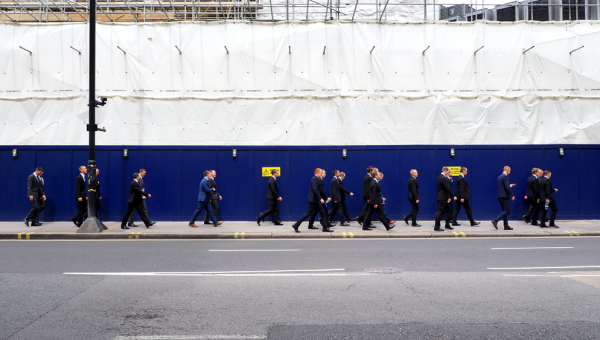
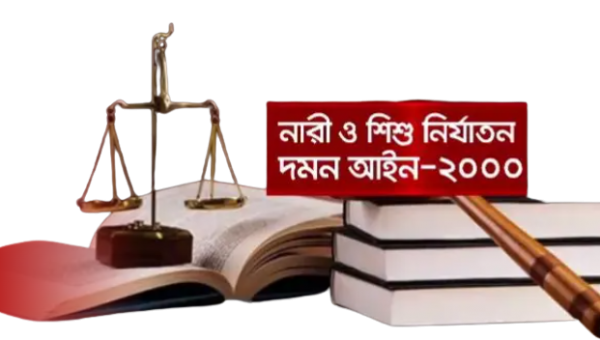

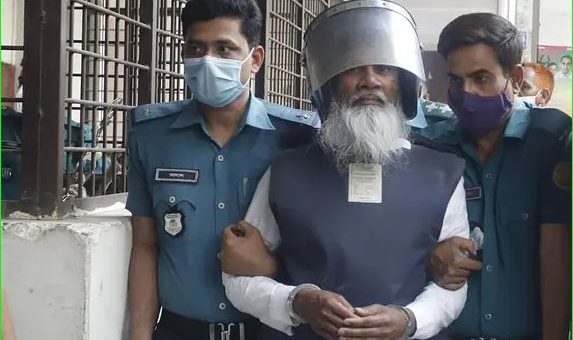
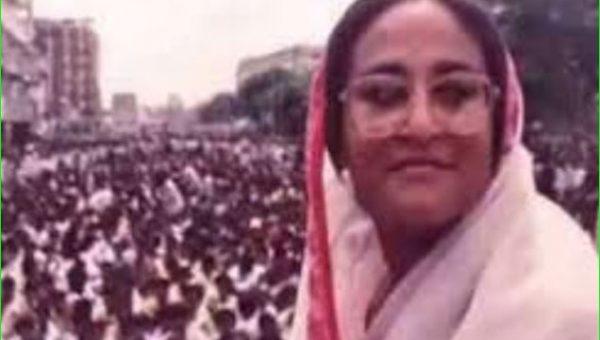


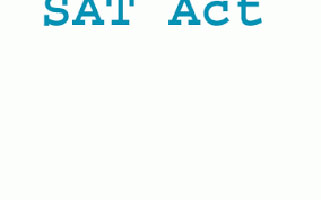


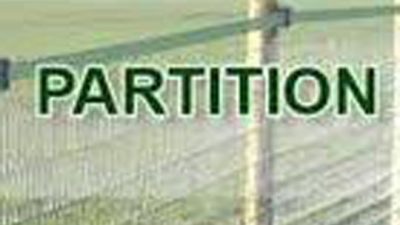
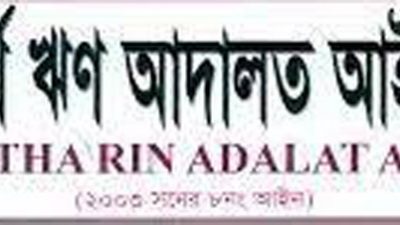

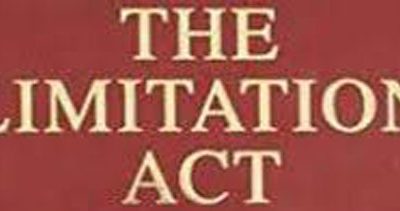

Leave a Reply
You must be logged in to post a comment.